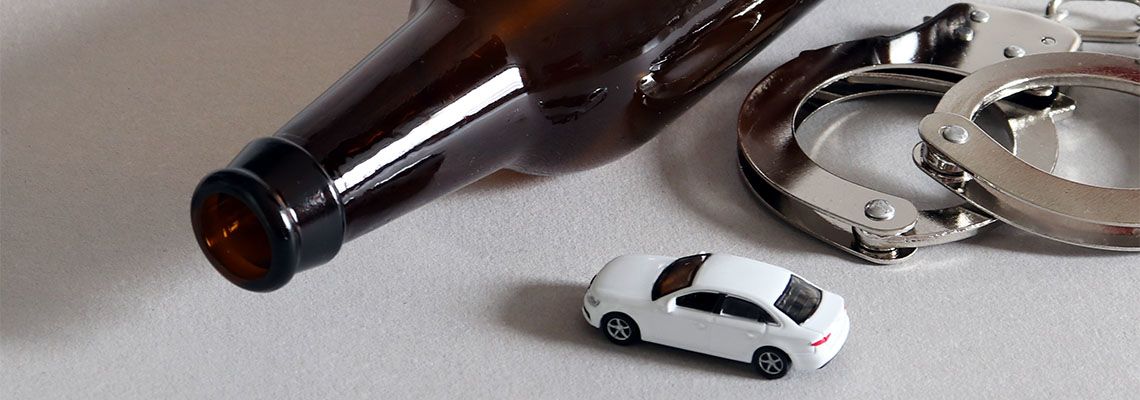
The aftermath of a DUI arrest can be an overwhelming experience, filled with uncertainty and anxiety. As the weight of the situation sinks in, it's entirely normal to feel lost, particularly when confronted with Colorado's laws surrounding ignition interlock devices.
This is where our comprehensive four-part guide steps in, which serves as a tool for understanding what to expect. Our team at The Leier Law Office LLC aims to provide you with a thorough comprehension of ignition interlock devices—educating you on the installation process and the potential consequences of misuse.
Part One: Understanding Ignition Interlock Devices
Ignition interlock devices (IIDs) are a critical part of the strategy to combat drunk driving in Colorado. These devices, integrated directly into the ignition system of a vehicle, function by requiring the driver to provide a breath sample before the vehicle can be started. The IID analyzes the breath sample for the presence of alcohol. If the sample indicates a blood alcohol content (BAC) the vehicle will not start. This can effectively prevent individuals from driving under the influence of alcohol.
These devices are highly sensitive and are capable of detecting even small amounts of alcohol. As such, it is essential to avoid using any alcohol-based products like mouthwashes or breath mints when you are required to use an IID. The goal is to promote safe driving and prevent drunk driving incidents, ensuring road safety for all.
Part Two: Colorado Ignition Interlock Devices Laws
In Colorado, specific laws govern the use of ignition interlock devices. Depending on the offense and the driver's BAC level, certain individuals may be required to use IIDs under specific circumstances. For individuals arrested for driving under the influence (DUI) before January 1, 2023, the duration for using an IID can range from 8 months to 2 years, depending on the BAC level and the number of previous offenses. For those arrested on or after January 1, 2023, the duration of using an IID ranges from 9 months to 2 years, again depending on the BAC level and previous offenses.
Colorado law also identifies persistent drunk drivers (PDD). Drivers with multiple alcohol violations, refusals on their record, or BAC levels above .15 may receive this designation, which could result in longer interlock requirements. Refusing to submit to chemical testing could lead to an automatic two-year interlock requirement.
Part Three: Installation and Maintenance of Ignition Interlock Devices
To comply with Colorado's IID requirements, the device must be installed by an approved interlock vendor. This process involves connecting the IID to the vehicle's ignition system and ensuring that it functions correctly. Regular maintenance and calibration are necessary to ensure accurate readings and prevent tampering.
Once installed, the driver must provide a breath sample before starting the car and must provide additional samples periodically while driving. The IID analyzes the breath sample for alcohol content and determines whether the vehicle can be started or continue to operate. The frequency at which the interlock device asks for a breath sample may vary, but it typically requires periodic retests while the vehicle is in operation. Proper maintenance is crucial to avoid penalties and violations.
Part Four: Consequences of Violating Ignition Interlock Device Requirements
Non-compliance with the requirements of an ignition interlock device can have severe consequences. If a driver fails a breath test, the interlock device will not shut off the vehicle while it is in motion. However, the failed test will be recorded and may result in consequences such as license revocation or extended interlock device usage.
Violations such as failing to use the IID as required, tampering with the device, or failing the breath test can lead to further penalties, including extended IID requirements, fines, license suspension or revocation, and potential jail time. Therefore, it is essential to strictly adhere to the guidelines and restrictions imposed by the IID program to avoid additional legal troubles.
One silver lining to the IID requirement is that it could allow individuals to reinstate their driving privileges earlier than if they did not have the device installed. The specific eligibility for early reinstatement with an interlock device depends on the driver's offense, their BAC level, and their compliance with the required interlock period.
Strong Legal Representation
Ignition interlock devices play a vital role in promoting safe driving and preventing drunk driving incidents in Colorado. Understanding the laws, the installation process, and the consequences of violating IID requirements is essential for individuals required to use IIDs. At The Leier Law Office LLC, we strive to help our clients through these requirements, helping them regain their driving privileges while also ensuring road safety for all.
If you are facing an IID requirement, contact our experienced team for strong legal representation. We will guide you through the IID process and provide you with the support and assistance you need. Schedule a consultation today to learn more



